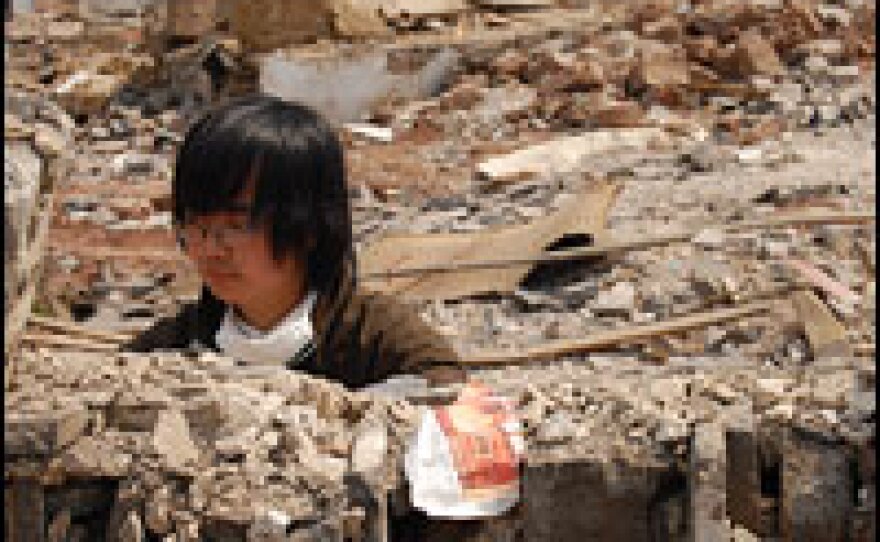China's Three Gorges Dam is the largest hydroelectric project in the world, and one of the most controversial.
Over the past decade, 1.3 million people have had to move to make way for the enormous reservoir created by the dam. The last of the cities to become part of that reservoir is Kaixian, some 180 miles upstream from the project.
The relocation of Kaixian's residents just wrapped up this summer. And this fall, when water levels behind the dam are raised one last time, the 2,000-year-old city will be submerged.
Back in the spring of 2008, Kaixian was actually two cities. There was the new city of Kaixian, whose 20-story apartment blocks, wide boulevards and concrete plazas were built from scratch over the last five years. Most of the city's residents had moved there. There also was the old city of Kaixian, 15 minutes away by motorcycle, but worlds away in look and feel.
In March, the old city was being torn down to ensure the safety of boats traveling on the future reservoir. The city had become a landscape of rubble, most of it concrete chunks, but also wooden planks with exposed nails, and the odd piece of furniture. The buildings that were still standing loomed like ghosts. Their doors and windows had been removed. The balconies lay empty.
Artist and filmmaker Chen Zhong has made four trips to Kaixian to document its final days through photos, video, and an art installation — a remnant of an old wall that he and a few day laborers covered with newspaper.
The project is a collaboration between Chen and another Chinese artist, Xie Xiaoze. Chen says the newspapers represent the role the media has played in promoting the Three Gorges Dam. They also serve as a record of events. Many of the newspaper headlines reflect events related to the dam, including the demolition of buildings in old Kaixian.
Chen says the newspaper-covered wall is a temporary monument to help people remember the old city.
Chen was born in 1968 at the height of the Cultural Revolution. His parents had been denounced as enemies of the state because their families had owned land. They gave their son the name Zhong, meaning "loyalty." They hoped to persuade others that they were in fact a good family.
Today, Chen says he's apolitical. Like many Chinese, he's conflicted about the Three Gorges Dam. So much is being lost, he says, but at the same time China needs power.
Still, as he stands amid the rubble, he can hardly believe what's going to become of Kaixian in a matter of months.
"We are standing somewhere that's going to be under water," he says. "Right now, the earth under our feet is going to be under water ... that's really a weird feeling right?"
Chen plans to be in Kaixian the day the waters roll in this fall.
Copyright 2022 NPR. To see more, visit https://www.npr.org. 9(MDAzMjM2NDYzMDEyMzc1Njk5NjAxNzY3OQ001))







